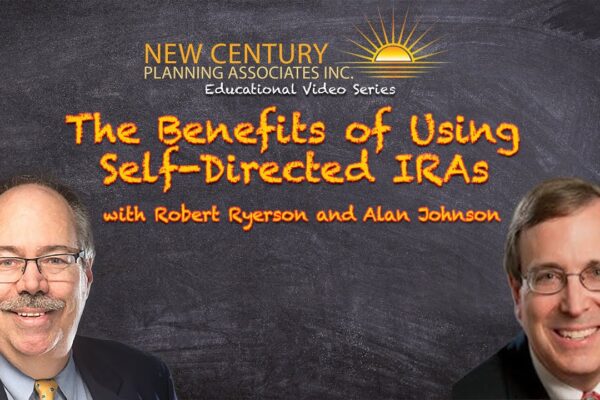A Look at the Top Benefits of a Financial Plan
For many people, creating a financial plan is not a top priority, particularly when they’re young. Quite often, people don’t consider a financial plan until they begin to approach retirement age, a time when money concerns come to the forefront for most people. Many also think of financial planning as an activity that’s only necessary for the wealthy, not realizing the benefits it can have for those not part of the so-called 1 percent. None of this is a big surprise when you consider the lack of financial education in the US for elementary and high school students. Just 21 states require some type of personal finance class for high school students, and only 25 require an economics course.
Not only can a financial plan help you regardless of your income level, but it can also be a benefit no matter your current age. Most experts recommend establishing a financial plan when you’re young or when you start your career for the most benefit. If you have not yet considered a financial plan or you think it’s not worth your time, consider the following points.
Establish Clear Goals

Having any kind of financial goal is the first step forward. Creating a financial plan can seem somewhat unnecessary and time-consuming when you don’t have a goal to work toward. But if you have a few achievable financial goals in mind, this can make it easier to implement your plan and stay motivated to follow it. Your goal might be to pay off your credit card debt, establish a fund for your child’s education, or save up for a down payment on a house. Establishing goals for the short, medium, and long term will help you achieve financial success on your terms and get what you want out of life.
Get Confident about Money Management
Financial planners are not just for those who have more money than they know what to do with; working with a professional can be beneficial for anyone. If you’re a new graduate or just starting your career, engaging with a financial planner can help you immediately get on the right track with your spending and saving. Similarly, if you’re starting to plan for a baby, getting divorced, switching careers, buying a house, or coming into an inheritance, a financial planner’s advice can help you navigate these life events and make the best decisions for your money. Really, there’s never a bad time to work with a financial planner.
If you feel uncomfortable about managing your own money or you don’t know where to start, a few planning sessions with a financial professional might help to soothe your anxiety. They will try to get an in-depth view of your current finances, complete a cash flow analysis, help you define your goals, and come up with a detailed plan that will cover savings, investments, and so on.
 Ideal Lifestyle in Retirement
Ideal Lifestyle in Retirement
Have you always dreamed of being able to travel the world during your golden years? Want to purchase a vacation home? A financial planner is invaluable in making your ideal retirement happen. Planning for retirement can be complicated—Social Security alone doesn’t provide enough for most people to live comfortably, and generous pensions are becoming a thing of the past. Even a 401(k) on its own may not be enough, especially if your employer fails to match your contributions.
For your ideal retirement, you may have to rely on a combination of Social Security, 401(k)s, individual retirement accounts (IRAs), health savings accounts (HSAs), and other sources of income. At the same time, you’ll likely confront higher healthcare expenses. You may also wish to move to a better location for your tax situation, or to leave a legacy for your family. With so many factors to consider and financial decisions to make, a good financial plan drawn up by a professional is practically a necessity if you want a retirement you actually enjoy.
Build Your Savings Faster
More people than you might think are unprepared when it comes to savings. Few have dedicated savings accounts for emergencies, and often those that do have such an account don’t have enough put away. Experts generally advise a minimum of six months of living expenses put aside for emergencies, but you might want to adjust that number depending on your situation.
At any rate, creating a comprehensive financial plan will go far in helping you save, and it can also help you reach your savings goals faster. Those with a financial plan often report saving a significantly higher percentage of their income than those who do not have a plan. A detailed plan also makes it easier to see when you’re falling behind or not meeting the savings benchmarks you need to meet to achieve your goals. Without a comprehensive plan, it’s all too easy to lose track of your goals and your progress toward them. You may be tempted to skip a month or two or savings here and there—which is fine if this happens rarely, but disastrous if it becomes a habit. A financial plan can help you take a more disciplined, consistent approach to saving.
Author
Robert Ryerson
Although Robert M. Ryerson completed all the necessary requirements to earn bachelor of arts degrees in both English and economics at Rutgers University, college policy at the time prohibited the issuance of dual degrees. As a result, he graduated from Rutgers with a single bachelor of arts in economics before finding employment as a stockbroker with Shearson Lehman American Express in New York City 1984. Robert M. Ryerson has since established himself as a respected estate administrator and legacy planner. In addition to his economics degree from Rutgers, Mr. Ryerson holds several professional designations including Retirement Income Certified Professional (RICP)®; Certified In Long Term Care (CLTC)®; Certified Financial Fiduciary (CFF)®, and Certified Identity Theft Risk Magenament Specialist (CITRMS)®. He has shared his knowledge on the subject of identity theft as the author of the book What’s The Deal With Identity Theft?: A Plain-English Look at Our Fastest Growing Crime. He has also covered identity theft issues directly for students as the instructor of the adult education course Understanding Identity Theft: Our Fastest Growing Crime.






